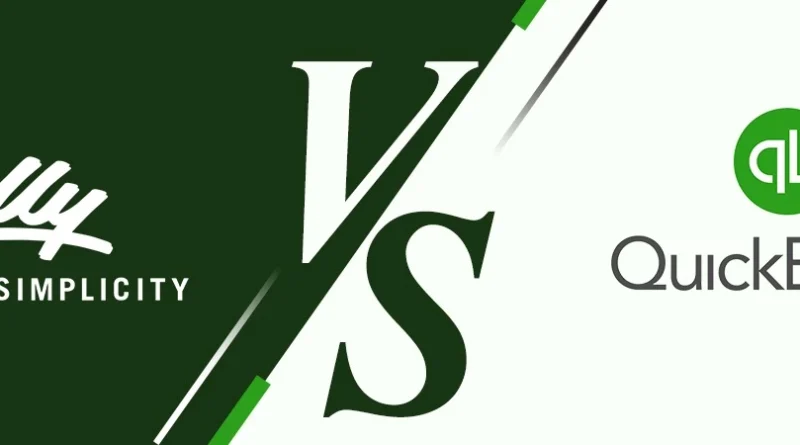Tally vs QuickBooks
Table of Contents
Tally vs. QuickBooks: Integrations and Compatibility
Introduction
In today’s digital age, the effectiveness of accounting software heavily relies on integrations and compatibility. Many businesses find themselves comparing options like Tally vs QuickBooks to determine the best fit. Both software solutions offer unique features that cater to various business needs. However, their ability to integrate with other tools and systems significantly influences their overall usability. This article explores the integrations and compatibility of Tally and QuickBooks, helping you make an informed decision.
Overview of Tally and QuickBooks
Tally is a popular accounting software primarily used in India. It is known for its robust features tailored to small and medium-sized businesses. Tally provides excellent tools for managing finances, inventory, and compliance with Indian tax regulations.
QuickBooks, on the other hand, is widely used globally. It offers a comprehensive suite of accounting features suitable for businesses of all sizes. QuickBooks provides extensive integrations with various third-party applications, enhancing its functionality.
Integrations of Tally
Tally with Other Software
Tally offers limited but essential integrations. It primarily integrates with local software applications. These include point-of-sale systems, payroll software, and inventory management tools. Such integrations help businesses streamline their operations.
API and Custom Integrations
Tally provides an API for developers. This allows businesses to create custom integrations tailored to their needs. However, this requires technical expertise. Many small businesses may find this challenging without dedicated IT resources.
Third-Party Add-Ons
Some third-party add-ons are available for Tally. These can enhance its functionality. However, the selection is not as extensive as QuickBooks. Users should research available options to determine their suitability.
Integrations of QuickBooks
Wide Range of Integrations
QuickBooks excels in its integration capabilities. It integrates with over 650 third-party applications. This includes payment processors, e-commerce platforms, and CRM systems. Businesses can easily connect their existing tools to QuickBooks.
Popular Integrations
QuickBooks supports integrations with popular applications. These include PayPal, Shopify, Salesforce, and Mailchimp. Such integrations streamline workflows and improve productivity. Users can manage various aspects of their business from a single platform.
API and Developer Resources
QuickBooks offers robust API documentation. This enables developers to build custom integrations easily. Businesses can tailor QuickBooks to their unique requirements. This flexibility makes QuickBooks a favorite among tech-savvy organizations.
Compatibility with Operating Systems
Tally Compatibility
Tally primarily operates on Windows. While it can run on other systems through emulation, this is not recommended. Users may face performance issues when using Tally on unsupported platforms.
QuickBooks Compatibility
QuickBooks is more versatile in terms of compatibility. It is available as a cloud-based solution, making it accessible from any device with internet access. Additionally, QuickBooks offers desktop versions for both Windows and Mac users. This flexibility caters to a broader range of businesses.
Mobile Compatibility
Tally Mobile Options
Tally has limited mobile compatibility. Tally’s solutions are primarily desktop-focused. While there are mobile apps available, they are not as feature-rich as QuickBooks. Users seeking mobile access may find this limitation challenging.
QuickBooks Mobile App
QuickBooks offers a robust mobile application. The app allows users to manage finances, create invoices, and track expenses on the go. This convenience is essential for modern businesses. The mobile app enhances productivity for users who travel frequently.
User Experience and Ease of Integration
Tally User Experience
Tally provides a user-friendly interface. However, its limited integrations may hinder the overall experience. Businesses relying on multiple tools may face challenges in data synchronization. Users may need to manually transfer data between systems.
QuickBooks User Experience
QuickBooks is designed for ease of use. Its extensive integrations make it easier for users to connect various applications. Data flows seamlessly between integrated tools, enhancing the user experience. QuickBooks users can automate many processes, saving time and reducing errors.
Support and Resources
Tally Support
Tally provides customer support for integration issues. However, the resources available may be limited. Users may need to rely on forums or community support for additional help.
QuickBooks Support
QuickBooks offers extensive support resources. This includes documentation, tutorials, and community forums. Additionally, QuickBooks provides customer service for integration-related queries. Users can access a wealth of information to resolve issues quickly.
Conclusion
When comparing Tally vs QuickBooks, it is clear that both have unique strengths in integrations and compatibility. Tally offers essential integrations but has limitations in mobile access and third-party options. QuickBooks, on the other hand, excels with a wide range of integrations and strong mobile capabilities.
For businesses prioritizing flexibility and ease of use, QuickBooks may be the better choice. However, companies primarily operating in India and seeking localized solutions might prefer Tally. Ultimately, understanding the integration capabilities and compatibility of each software is crucial for making the right decision.


